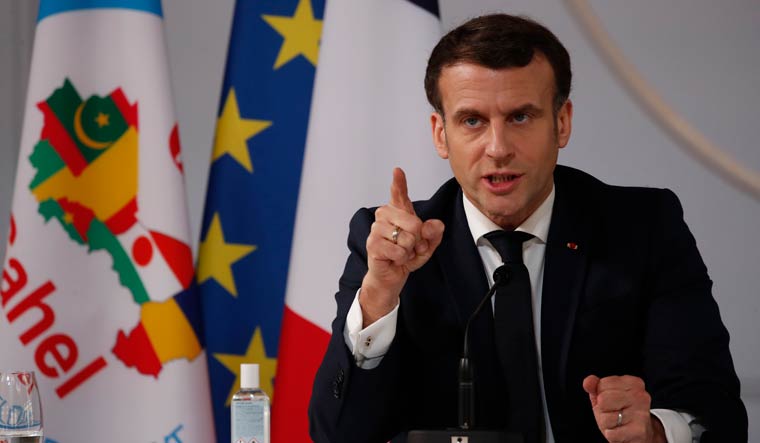
France’s lower house of parliament is voting Tuesday on a bill that would strengthen government oversight of mosques and religious schools and crackdown on polygamy and forced marriage, among other measures aimed at rooting out Islamic radicalism.
The bill is part of broader French efforts to fight extremism in recent years that gained new urgency after a teacher was beheaded in October and other attacks. President Emmanuel Macron says the efforts are also needed to protect French values like gender equality and secularism from encroaching on fundamentalism in some communities.
But many French Muslims say the draft law limits religious freedom and unfairly targets them, and say France already has enough laws to fight terrorist violence. Critics call the bill a political manoeuvre by Macron to win support from conservative and far-right voters ahead of next year’s presidential election.
The bill is expected to win approval in the National Assembly, which is dominated by Macron’s centrist party, as well as the conservative-led Senate.
France, West Africa to step up counterterrorism efforts
Macron on Tuesday also urged West African leaders to step up efforts in the fight against Islamic extremists in the Sahel region both on the military and political fronts, with support from the international community.
Macron was joined by video from Paris Tuesday a summit held in N’Djamena, Chad with the leaders of Mali, Burkina Faso, Chad, Niger and Mauritania.
The challenge of the N’Djamena summit is to take a next step, further and stronger, Macron said. We must not release pressure on terrorist groups.”
He said military operations should keep focusing on the three-border zone between Mali, Niger and Burkina Faso, the epicenter of the fight against jihadist groups.
The military will also this year try to cut off the head of al-Qaida-linked groups known as JNIM and the Macina Liberation Front, he added.
France has about 5,100 troops in the five West African countries, which represents the country’s largest military operation abroad.
French soldiers take part in operations in cooperation with a regional force made up of troops from the five countries that was launched in 2017 with support from the United Nations, the African Union and the European Union.
Macron called on international leaders to provide more financial support to the so-called G5 Sahel force, which needs 40 million euros per year to be operational. As of now, we need to accelerate the financing of the joint force, he said.
Macron also called for rebuilding state mechanisms and stepping up efforts to support the civilian population and boost development in the region.
He praised efforts to help stabilise the Sahel region, as several European officials and heads of international organizations attended the summit via videoconference. U.S. Secretary of State Antony Blinken and U.N. Secretary-General Antonio Guterres were to participate via pre-recorded video messages.
French troops have been present the Sahel region since 2013 when they intervened in Mali to expel Islamic extremist rebels from power.